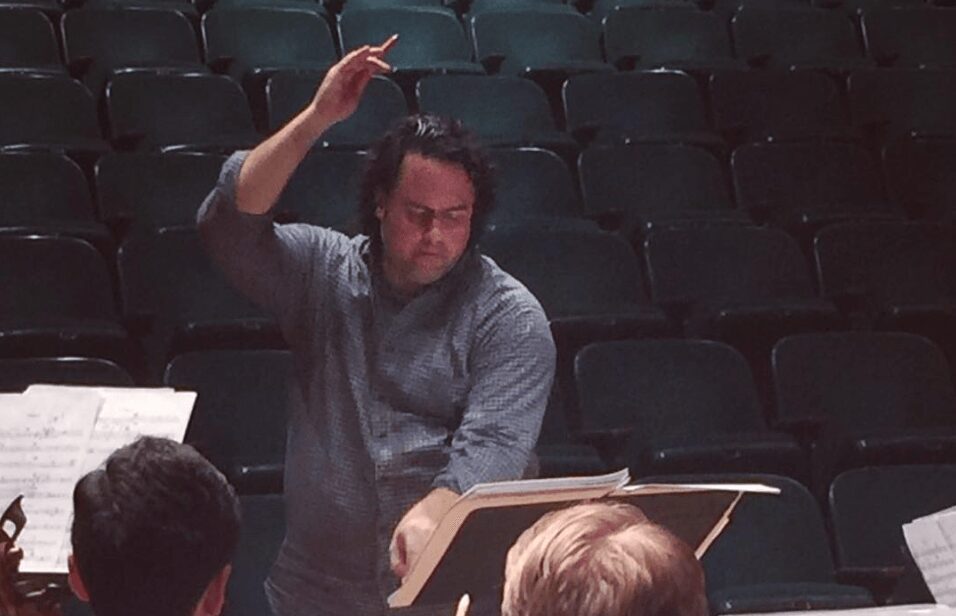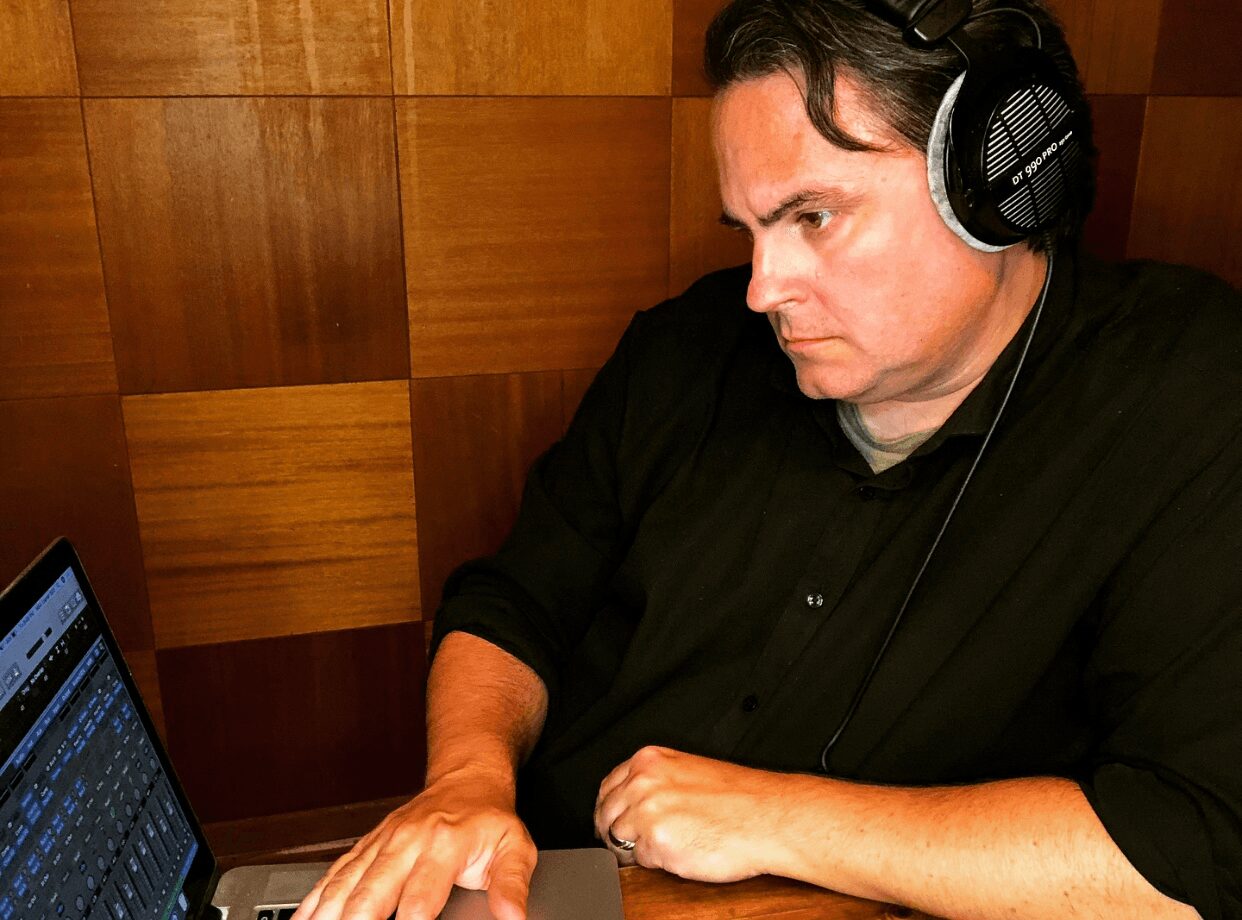We were lucky to catch up with Lane Harder recently and have shared our conversation below.
Lane, thanks for joining us, excited to have you contributing your stories and insights. What do you think matters most in terms of achieving success?
Success is never effectively measured in dollars, college degrees, job titles, or personal affiliations. Being successful is always predicated on the quality of the creative work and the effect that the work has on the community. Quality of creative work is always maintained by executing the fundamentals of the work at a very high level all the time and then achieving a synthesis of those fundamentals in an artistic work. There can’t be any shortcuts. (And in any type of artistic endeavor, why would a creator want for there to be shortcuts in the first place?) I’m always skeptical of systems, software, or theories that effectively make decisions for the creator. What these give you in efficiency also rob you of the chance to deepen the understanding of your own creative choices. Taking your hand off the wheel of the fundamentals is never a recipe for success.
Measuring the effects of the work on a community is a different story, but it is possible. If your community shows up for your events, supports you financially through box office receipts or grants or loans, and gives you positive feedback about your work, even if (especially if) the work challenges it, those are good signs. Ultimately creative people must serve their communities. If they do this, that is perhaps the greatest attainable success of all. That said, learning is also a form of success.
Recently I was commissioned by the Allen Philharmonic Orchestra to compose a work commemorating the lives lost in the shooting in Allen on May 6, 2023. The process of writing the work and then interacting with the community around its performance at a memorial service was a great example of how art must be a two-way street between creator and community. Hearing from the community about the effects of the event being commemorated was a deeply moving experience. I mention this because this is not a work for which I would necessarily benefit in terms of career advancement. I really saw it as a gift to the community of Allen, and yet this strikes me as being a particularly successful work for the reasons mentioned above. I learned more in this experience by listening to others than by telling anyone anything about the piece or the event being commemorated. If I as an individual was successful, it was because of what I learned from this wonderful and loving community of people.

Lane, before we move on to more of these sorts of questions, can you take some time to bring our readers up to speed on you and what you do?
I’m Lane Harder, and I’m a lifelong musician. I grew up in rural East Texas with two avocational musicians as parents, so music was always around and consumed and discussed with the utmost seriousness in our household. With my parents’ support, I went to SMU on a music scholarship and later earned degrees from The Peabody Institute and UT Austin. I’m currently the Co-Chair of Music Composition and Theory at SMU, and I maintain a full calendar of performing and composing. I am a percussionist and arranger at Saint Michael and All Angels Episcopal Church in Dallas, and I am also the Program Coordinator for the European American Musical Alliance Summer Institute in Paris, France.
I love composing in many styles and have composed for ballet, opera, orchestra, audiobook, all sorts of chamber music combinations, and electronics. I try to take what aspects of the repertoire accomplish successfully and then stylistically push those aspects just a little bit in my own music. I have far too many influences to name, and as a result, my music tends to be chameleonic, but my always strive for my music to have the linear integrity of Bach with a harmonic language as rich (and as slippery) as Poulenc, Duruflé, and Wayne Shorter.
As a teacher, my goal is always to help students write their own music more fully and more intentionally, always preserving their artistic impulse and vision. My teachers always did this for me, and it is always a joy to see my students develop their own individual voices (hopefully) protected from the dreadful influence of academic approaches to music making.
Staying in touch with our local community of musicians in Dallas informs my music and my teaching a great deal. I never want to be an “ivory tower” composer who is out of touch with his fellow musicians. The cross-pollination of composing, performing, and teaching gives me a unique perspective (and practice) of each of these disciplines.

We often hear about learning lessons – but just as important is unlearning lessons. Have you ever had to unlearn a lesson?
When I was a younger composer, I thought I would improve simply by starting a new piece of music and hoping that my technique would develop by virtue of having started something new, that all of the pieces of the puzzle would grow together to make a better whole. After studying at the European American Musical Alliance Summer Institute, I learned that one’s technique is segmentable and that each of those segments can be perfected (or at least improved) before recombining it with all of the other segments. Harmony, counterpoint, rhythm, orchestration, cadences, sequences, introductions, endings, development sections, and so much more can be taken apart one at a time and truly studied in more-or-less isolation. Doing this showed me that I was in possession of a great many tools that all work together instead of one big one that seemed opaque and mysterious.

Is there something you think non-creatives will struggle to understand about your journey as a creative? Maybe you can provide some insight – you never know who might benefit from the enlightenment.
Success in my field is never determined by any kind of tangible ROI. Financial and material resources are necessary for the creative person to work and live, but success in music composition is measured in many other ways. Many artists seek connection with an audience, and I believe that it should be our goal as composers for our music to find our audience. If we foreground our music (instead of ourselves), I truly believe that we have a better chance at forging more authentic connections with audiences. This is because music is so abstract and can touch and affect audiences in ways that I will likely never know. Artists will fail as people, will run afoul of public taste, and may cross political paths with gatekeepers who don’t want to open their coffers to them, but the right creation written with the right intention and heard by the right listener can occupy a meaningful place in their life forever.
Contact Info:
- Instagram: lane.harder
- Youtube: https://www.youtube.com/laneharder
- Soundcloud: https://www.soundcloud.com/lane-harder
- Other: https://www.smu.edu/meadows/areasofstudy/music/faculty/harderlane


Image Credits
Image credits by Lane Harder, Fawn Harder, and Michelle Anderson.


